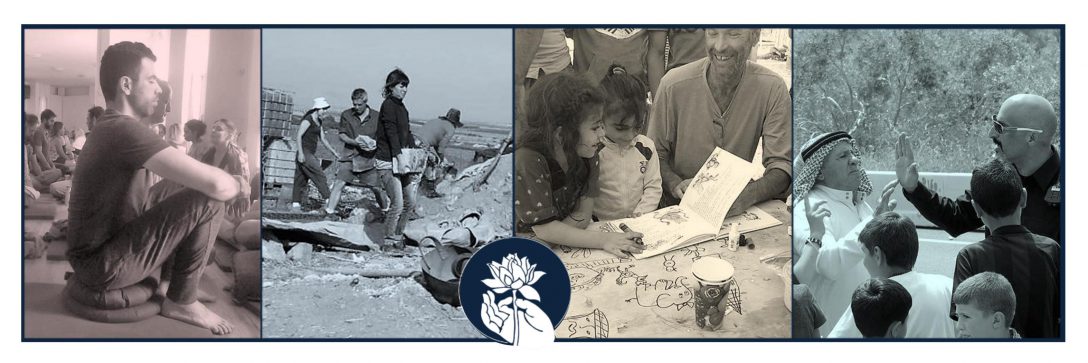This blog hopes to be a virtual platform for the vision and variety of Engaged Dharma activities in Israel.
Dharma is still young in Israel, barely 20 years old. But in the last decade there have been quite a few serious initiatives of Engaged Israeli Dharma. Some of these are happening through individuals and some of these are group efforts.
As the Dharma community in Israel establishes itself more firmly in this local soil it seems clear that we have both the possibility and responsibility to reach out into society and – with the Dharma as our guide – engage in the various challenges that it is facing.
Finding the skillful means to apply Dharma to social issues is both a challenge and an opportunity for growth and deeper understanding. It is presumptuous to assume that Dharma has within it all the answers to our social woes. But it can certainly have a meaningful role in healing our society and bringing good to all the people living here.
Reaching out into the world is not solely a matter of more people learning the power of Dharma. In order to act skillfully and efficiently we also need to learn from other disciplines and forms of action and see how Dharma insights can fit in with them. Dharma and Conflict Resolution, Dharma and Education, Dharma and Ecology are a few instances where this need of mutual learning is apparent. Another thing to keep in mind is that bringing Dharma wisdom to help with social challenges does not usually mean teaching Dharma per se. One of the challenges of Engaged Dharma is to translate Dharma language and insights so that they can be meaningful and useful to other people and their concerns.
Engaged Dharma can take on a variety of forms. There are several general characteristics that are probably common to all such forms:
– The understanding that Dharma practitioners are a very fortunate and privileged group. This does not imply looking down on anyone else but on the contrary implies a responsibility to give back to society some of the good that fell in our part.
– Engagement within society is part and parcel of Dharma practice. The split between practice and social action is an artificial one. Social action is the natural response of a heart that was awakened to the presence of Dhuka and to the commitment to reduce it. It is a direct expression of inter-connectedness. On the other hand, social action which lacks means for introspection, self-empowerment and clarification of motives can easily lose its way.
– A deep commitment to reducing suffering. Whether we are engaged in education, economics or peace building – spreading goodness and ending of Dukha are our only ideology.
– Nonviolence. Nonviolence is physical as well as verbal, internal no less than it is external. We have an obligation that our struggle for good will not cause harm to others nor breed hatred and ill-will in our hearts. This obligation influences both our choice of words as well as means of action.
– Emphasizing an open and compassionate heart, free of greed, delusion and ill-will as the key to ending injustice. Seeing social action as a direct expression of inter-connectedness.
– Working simultaneously on changing both social conditions and social consciousness. Various forms of oppression and injustice – wars, destruction of the environment, social inequality – are all manifestations of our beliefs and perceptions regarding what is important, what is just and what is possible. Likewise, the state of our social institutions – the media, the education system, healthcare and the government – reflect our priorities as a society. Along with direct action to make society better, we also need to work to shift the prevailing psycho-social beliefs and values system that created the current state of affairs.
You are very welcome to contact us with questions and suggestions.

[…] about activism in the world and approaching it from a Dharma perspective. In other words, Engaged Dharma. This post's a bit long – if it's too long, skip to the last 2-3 paragraphs or […]
will you be hosting any retreats in isreal in the next 4 months?
looking forward to hearing more about your work…
warmly,
vanessa
HI Vanessa,
There is an interesting work retreat happening in the begining of October. Look for the being Peace retreat at http://sanghaseva.org/comingup.htm
Also there are other activiites happening – I should update this page (and add a "contact us" option) in the next few days.
Aviv
[…] פעיל לסולידריות ופיוס בין יהודים ופלסטינים, מיוזמי קבוצת דהרמה מעורבת חברתית תגיות: אקטיביזם, […]
[…] windows and doors – this is what remains of the Jaber family's home. The members of the Engaged Dharma group return from another visit to Israel's dark […]